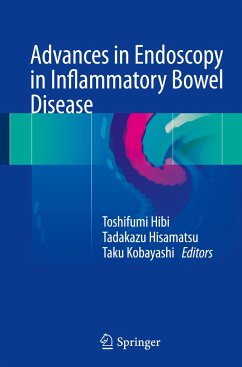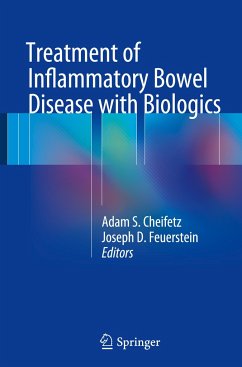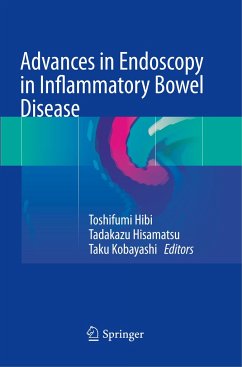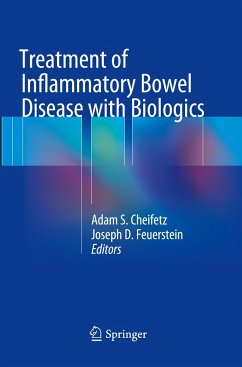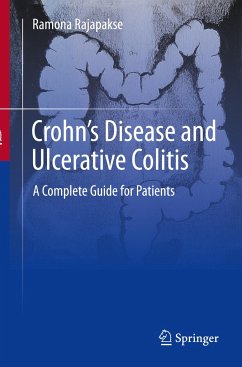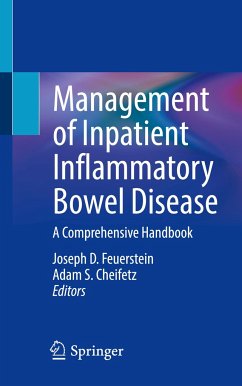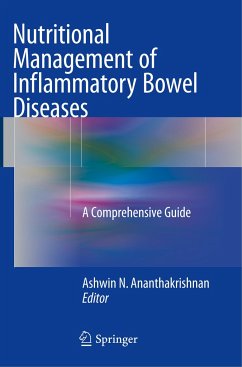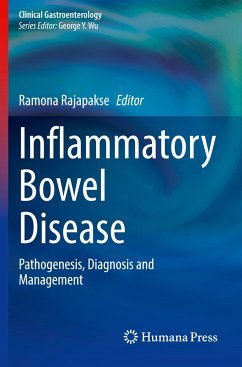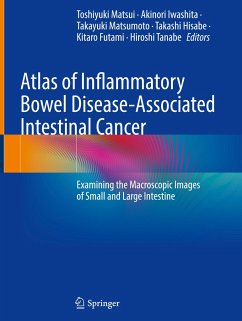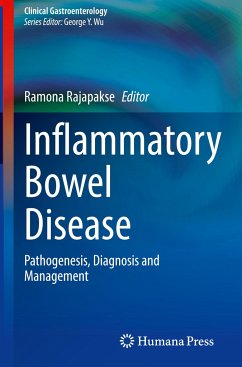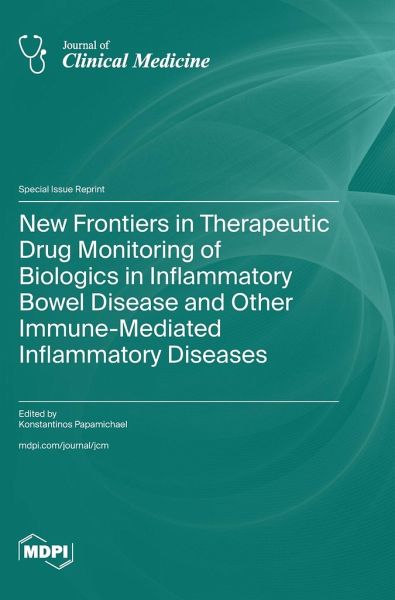
New Frontiers in Therapeutic Drug Monitoring of Biologics in Inflammatory Bowel Disease and Other Immune-Mediated Inflammatory Diseases
Versandkostenfrei!
Versandfertig in 1-2 Wochen
70,99 €
inkl. MwSt.

PAYBACK Punkte
35 °P sammeln!
Therapeutic drug monitoring (TDM) has emerged as a useful tool for optimizing biological treatment in patients with inflammatory bowel disease (IBD) and other immune-mediated inflammatory diseases (IMID). Reactive TDM has rationalized the management of primary non-response and secondary loss of response to biologics, while cumulative evidence suggests that proactive TDM is efficacious for optimizing anti-tumour necrosis factor (anti-TNF) therapy in patients with IBD. Proactive TDM can be very useful for optimizing biological therapy in specific IBD populations, such as pregnant women as well a...
Therapeutic drug monitoring (TDM) has emerged as a useful tool for optimizing biological treatment in patients with inflammatory bowel disease (IBD) and other immune-mediated inflammatory diseases (IMID). Reactive TDM has rationalized the management of primary non-response and secondary loss of response to biologics, while cumulative evidence suggests that proactive TDM is efficacious for optimizing anti-tumour necrosis factor (anti-TNF) therapy in patients with IBD. Proactive TDM can be very useful for optimizing biological therapy in specific IBD populations, such as pregnant women as well as patients with perianal fistulizing Crohn's disease and acute severe ulcerative colitis who are characterized by high drug clearance. Preliminary data suggest that proactive TDM may also have a role in de-escalating anti-TNF therapy in patients in clinical remission including stopping the immunomodulator when combined with anti-TNF therapy. However, several knowledge gaps and limitations hinder the wide implementation of TDM in clinical practice, including the optimal drug concentration to target the lag time between sampling and results and the lack of harmonization of TDM assays. Recent advances regarding the role of TDM include the use of rapid point-of-care assays and the incorporation of model-informed precision dosing. The aim of this Special Issue is to highlight the clinical utility of TDM and discuss the barriers and recent advances of TDM of biologics in IBD and other IMID.



